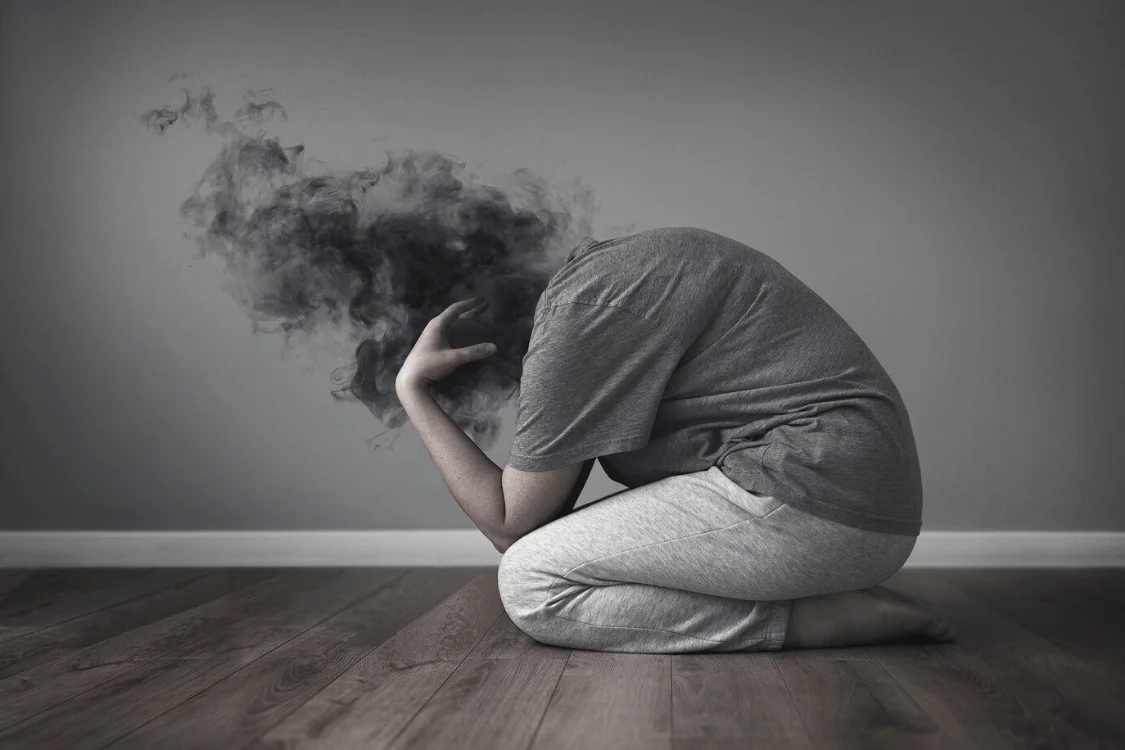
Internet Addiction Treatment
Internet addiction is characterized by excessive or poorly controlled preoccupations, urges, or behaviors regarding internet use that lead to impairment or distress. At Twilight Recovery Center, we address the complexities of this modern disorder, providing comprehensive treatment tailored to individual needs.

Internet Addiction Statistics

Internet addiction is a significant concern globally, particularly affecting young adults and teens. Studies show that 6% to 10% of internet users struggle to control their use. In the United States and Europe, prevalence rates range from 1.5% to 8.2%.
Research in China suggests even higher rates among youth, with up to 27% affected in some areas. Globally, about 6% of the population may suffer from internet addiction. These findings emphasize the need for more awareness and interventions to tackle this issue.
Types of Internet Addiction Disorders

Internet addiction can manifest in various forms, significantly impacting personal, social, and professional aspects of life. Here are the common types of problematic internet use disorders:
- Compulsive information seeking: This involves an insatiable urge to absorb news, data, and general information, often leading to a severe disruption in daily functioning.
- Cybersex/cyber-relationship addiction: This type entails excessive use of online dating sites, adult chat rooms, or viewing pornography, often at the expense of real-life relationships and responsibilities.
- Net compulsions: This category includes obsessive participation in online shopping, gambling, or stock trading, which can lead to financial and emotional distress.
- Gaming addiction: Characterized by the excessive playing of online games, this addiction can lead to social isolation and neglect of essential daily activities.
Each type of internet dependence problem serves as a potential escape mechanism from reality, providing temporary relief from stress or emotional struggles, yet with long-term negative consequences. Understanding these categories helps identify and address specific behaviors that contribute to internet dependency.
Signs and Symptoms of Internet Addiction
Internet addiction manifests through a range of behavioral and emotional changes, notably:

Increased Isolation
Individuals may withdraw from family and friends, preferring to spend time online rather than in social or real-life activities.

Emotional Changes
Common feelings of irritability, depression, or anxiety surface when internet access is not available. The reliance on digital interactions can significantly affect mood and overall emotional stability.

Neglect of Personal Responsibilities
A noticeable decline in personal hygiene, neglect of household chores, and disregard for professional responsibilities are prevalent as the compulsion to remain online grows.

Cognitive Symptoms
Difficulty focusing on tasks outside of online activities, intrusive thoughts about going online, and planning the next online session during offline periods are common.

Physical Symptoms
Excessive internet use can lead to physical discomfort or health issues such as eye strain, headaches, backaches, and sleep disturbances.
The compulsive use of the internet often serves as an escape from real-life problems or emotional discomfort, leading individuals to an addictive cycle that is difficult to break without appropriate intervention.
This pattern is similar to other behavioral addictions, where the activity—whether gambling, shopping, or browsing the internet—provides a temporary relief or pleasurable reward, reinforcing the behavior despite its negative consequences.
Why Do People Become Addicted to the Internet?
People often use the internet to escape from everyday stress – as a distraction that provides temporary relief from emotional discomfort or social isolation. This becomes problematic when the internet is used so compulsively that it overshadows real-life interactions and responsibilities.
Internet addiction can be driven by psychological factors such as anxiety, depression, or stress, where individuals find comfort in the anonymity and endless stimuli online. The internet’s design triggers dopamine releases in the brain, similar to gambling and other behavioral addictions, making the experience rewarding and challenging to quit.
Risk factors for developing internet addiction include early and excessive exposure during childhood without adequate parental supervision and underlying mental health issues. These factors contribute to an increased susceptibility to compulsive internet use.
Long-Term Effects of Internet Addiction
Chronic internet addiction can profoundly impact mental health and daily life. Over time, excessive internet use can lead to:
Social Isolation
Increased time online can diminish real-life interactions and relationships, leading to loneliness and withdrawal from community and social circles.


Anxiety and Depression
Constant connectivity can heighten stress and amplify feelings of anxiety and depression, often due to social comparisons, cyberbullying, or the pressure to be always available.
Decreased Achievement
Persistent internet use can interfere with academic and career achievements due to reduced concentration, neglect of responsibilities, and impaired time management.
Extended periods of sitting and screen time associated with heavy internet use can also result in physical health issues such as weight gain, back and shoulder pain, eye strain, and repetitive strain injuries like carpal tunnel syndrome.
Furthermore, internet addiction has been linked to structural and functional changes in brain regions involving emotional processing, executive attention, decision-making, and cognitive control. These changes can exacerbate issues with impulse control, leading to a vicious cycle of excessive internet use.
Addressing these consequences requires awareness, intervention, and treatment to mitigate the long-term effects and restore balanced internet habits.

Internet Addiction Treatment Options
At Twilight Recovery, we address internet addiction through a comprehensive suite of treatment options tailored to meet individual needs:
Cognitive Behavioral Therapy (CBT)
This therapy helps patients understand the thoughts and feelings that influence behaviors. CBT is effective in treating a range of issues that often co-occur with internet addiction, such as anxiety and depression. It focuses on changing specific behavior patterns, such as reducing the time spent online.


Group Therapy
We provide group therapy sessions that facilitate shared experiences and foster support among people with internet addiction. This encourages learning from others’ experiences and receiving peer support, which is crucial for managing and overcoming addiction.
Holistic Approaches
Our holistic treatments include meditation, yoga, and tailored nutrition plans to support our clients’ physical and mental health. These activities help reduce stress and promote a balanced lifestyle, which can lessen the urge for compulsive internet use.


Medication-Assisted Treatment
While there are no specific medications for internet addiction itself, we offer medication-assisted treatment to address any co-occurring mental health disorders, such as depression or anxiety, which often accompany excessive internet use.
Our treatment programs are designed not just to curb the immediate symptoms but also to address the underlying causes of internet addiction, ensuring a sustainable recovery and helping our clients lead healthier, more balanced lives.
Internet Use, Addiction, and Mental Illness
Internet addiction often intersects with mental disorders, such as depression, anxiety, and ADHD, creating complex challenges that require a nuanced approach to treatment. At our center, we recognize that internet addiction rarely exists in isolation – it frequently co-occurs with other psychological issues, which can both precipitate and exacerbate the addiction.
Studies indicate that individuals with internet addiction are significantly more likely to suffer from mental health disorders. For instance, they might be twice as likely to struggle with alcohol use, five times more likely to experience anxiety disorders, and six times more likely to suffer from depression or PTSD compared to those without such an addiction. This relationship can be bidirectional; mental health issues can lead to increased internet use as a coping mechanism, which can then spiral into an addiction.
Understanding this interplay is crucial in treating internet addiction effectively. Our dual-diagnosis treatment plans are designed to address both the addictive behaviors and the underlying mental health conditions simultaneously. We aim to enhance recovery outcomes by tackling both aspects together, providing a more stable foundation for long-term wellness.
Withdrawal Management
We understand that managing withdrawal symptoms from internet addiction is crucial for a successful recovery. Withdrawal symptoms can vary but commonly include feelings of irritability, depression, and anxiety, often coupled with restlessness when internet access is restricted.
To support our clients during this challenging phase, our dedicated staff provides 24/7 care, ensuring comfort and safety. We employ strategies to help manage these symptoms effectively, which may include:
- Structured environment: Creating a supportive and distraction-free environment helps reduce the urge to go online.
- Therapeutic activities: Engaging in therapeutic activities such as group therapy, physical exercise, and relaxation techniques can alleviate the intensity of withdrawal symptoms.
- Emotional support: Continuous emotional support from our team helps individuals process their feelings of frustration, loneliness, or boredom that often accompany withdrawal.
Our approach not only addresses the physical and emotional discomfort associated with withdrawal but also prepares clients for the next steps in their recovery journey.

Choosing the Right Rehab Treatment Center
Choosing the right rehab treatment center is a pivotal step toward successful recovery from internet addiction. Twilight Recovery Center, nestled in the serene surroundings of Tijuana, offers a holistic approach to treatment, ensuring that both the psychological and physical facets of addiction are addressed.
Why Choose Twilight Recovery Center?
Serene Environment
Our tranquil location provides the perfect backdrop for recovery, away from the triggers and stresses of everyday life.
Comprehensive Care
We offer a range of treatment modalities, including Cognitive Behavioral Therapy (CBT), group therapy, and holistic approaches like meditation and yoga, tailored to treat internet addiction.
Expert Staff
Our team of professionals is experienced in dealing with Internet and other behavioral addictions, ensuring that each client receives the best possible care.
Personalized Treatment Plans
We understand that each individual’s journey to recovery is unique. Our treatment plans are customized to meet each client’s specific needs and goals.
Supportive Community
Through group therapy sessions and support groups, clients can connect with others facing similar challenges, fostering a sense of community and mutual support.
At Twilight Recovery, we not only focus on overcoming addiction but also on developing strategies for maintaining internet use in a healthy and balanced way. We aim to empower our clients to lead fulfilling lives free from the compulsions of internet addiction.

Get Professional Treatment for Internet Addiction
If you or someone you know is struggling with internet addiction, Twilight Recovery Center provides a nurturing environment to embark on the journey to recovery. Our dedicated team is ready to help you regain control over your life and achieve long-term wellness. Reach out today to learn how we can assist you or your loved one in overcoming internet addiction.


